Intro


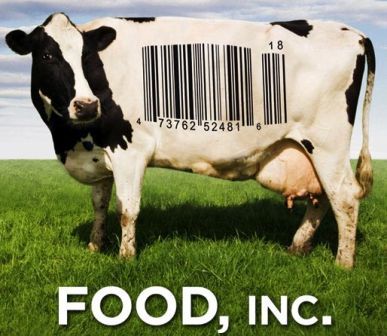
In a few short weeks a film is going to hit select theaters that has the potential to change the way so many of us look at our food. I couldn’t be more excited.
In April I was invited by the director, Robert Kenner, to attend a screening of Food, Inc. in Los Angeles. I jumped at the opportunity to see the film and at the chance to get away for the weekend – by myself, no kids, no diapers.
In a dark, modest looking screening room off of Sunset Blvd. my sister-in-law, Deborah and I found our seats – which were apparently taken so we found other, non-occupied chairs. We scanned the press packet and anxiously waited for the film that her husband, my brother, had been shooting for nearly two years.

Food, Inc. “lifts the veil on our nation’s food industry, exposing the highly mechanized underbelly that has been hidden from the American consumer with the consent of our government’s regulatory agencies, USDA and FDA.” (www.foodincmovie.com) It does so in a way that is honest and not intended purely for shock value but to inform and educate the often misguided and undereducated consumer.
In a film such as this you might expect to be scared out of eating highly processed meat by being inundated with images of brutality. Okay, well there was some of that but the only shot where you actually see an animal being killed is at Polyface Farm (causing one screener to shriek in horror) where Joel Salatin, owner/farmer, farms the way nature intended. Cows actually graze on grass. Outside. Sunshine and clovers over and over.
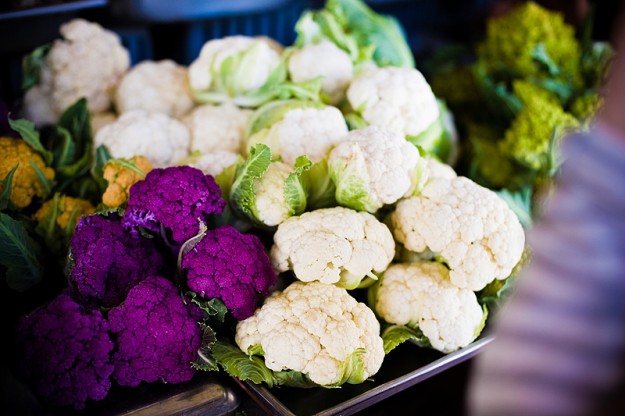
The fact is that many of us eat meat and that meat has to die for us to eat it but how it was treated and raised before it hits our plate not only affects the taste (which is vastly different) but also our health, environment, economy and most importantly it affects the lives of those people who are so often mistreated – paid unfairly and living in squalid conditions – who work in the processing plants.
We have gotten to a point where much of our food supply is controlled by a handful of large corporations “that often put profit ahead of consumer health, the livelihood of the American farmer, the safety of workers and our own environment.” (www.foodincmovie.com) And taste! Have they completely forgotten that food is suppose to have taste? Now I know that our health, supporting good farmers and caring for the well being of the workers in those factories is far more vital than taste but I’ll let the film tell you about the facts and let my love of food sing the glories of taste.
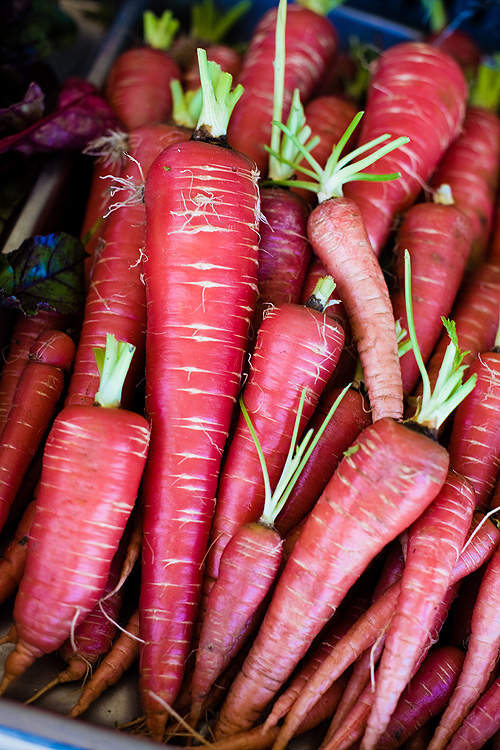
For shipping conveniences tomatoes are plucked prematurely from the vine while still green. The florescent lights in the grocery store shine above while the green orbs turn to red in an unnatural setting. Chickens live in unnatural conditions (crowded, fed grain, lights left on dim to simulate a 24 hour a day growth, etc.) to produce to supple and meaty breasts by the time they are 7 1/2 weeks old. While corn has climbed its way to the top of hundreds of ingredients lists including: ketchup, cheese, Twinkies, peanut butter, Cheez-Its, salad dressings, Coke, jelly, Sweet & Low, syrup, juice, Kool-Aid and meat.
Hello, food? Taste called. It wants to come back.
Food purchased directly from the knowledgeable hands that produced it has a taste that does not compare to foods shipped from thousands of miles away and had to be genetically engineered to survive transport. Cooking with seasonal produce is simple as very little has to be done to coax flavor and taste to emerge.
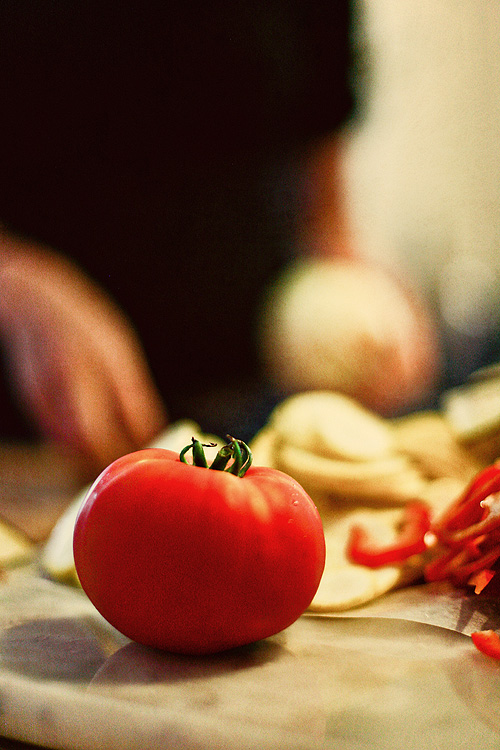
The day after the screening my brother, Chris and I met up with Robert Kenner along with his lovely and highly food-knowledgeable wife, Marguerite. Marguerite was busy watering her garden while she gave Chris and I her tips on raising tomatoes. I reveled in the sun as a slight breeze threw the aroma of peppery arugula in my face. Robby met us outside with his breakfast of warm rolled oats, toasted walnuts and sliced pears. Our mutual passion for good food led the conversation.
Robby understands that eating intentionally takes research and requires more work than simply going to the grocery store. But the benefits far exceed the cost of the alternative. “Before working on the film I didn’t pay very close attention to the labels. Now I understand that the majority of our food is created by an industrial machine that doesn’t have our best interests at heart.” Now Robby and Marguerite shop at the Farmer’s market and have learned to eat and source their food locally. Robby points out the advantages of eating in this manner. “It tastes good first of all. We are supporting our community and frankly we can not continue with the system we have.”
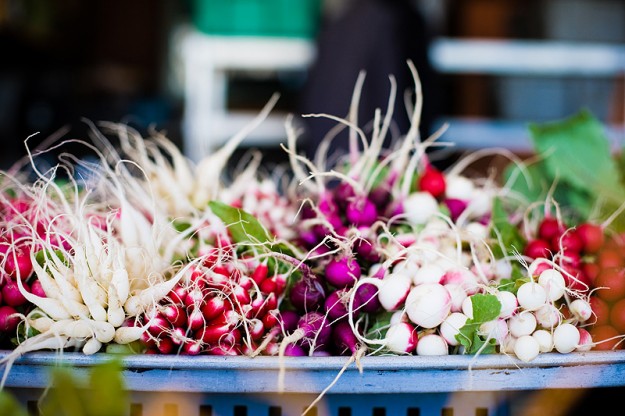
When we talked about organically labeled food Robby said “we can get distracted by ‘organic’. Is it better to have an organic Twinkie or not? Foods that make health claims (all-natural, grass-fed, organic, etc.) are often the ones that are sponsored by a big company.”
Practically speaking Robby urges everyone to understand the concept of seasonality. Of course he lives in Southern California where sweet and juicy strawberries exist in March but it can be done no matter where you live. You will be rewarded with food that is exceedingly tasty not to mention the fact that you will be supporting local farmers and your own community. Cooking at home is another way Robby encourages us to eat. Generally the food you make at home is healthier and you know and are in control of what goes into it.
Robby and Marguerite have begun to eat less meat and when they do eat meat (typically bought from the farmer’s market) they eat it “as a taste” – not as the star on the plate. “Meat for the environment is not good.” Robby says while he responds to himself by saying, “we are carnivores, but if we eat less meat we will all be better off.”

Just as the film, Food, Inc., concludes my intention is to leave you lingering with a taste of hope. Eating in the way that Robby describes does take time but the fact is that we can no longer sit in our ignorance and forget about these issues. Instead let us celebrate good food. Let us reward those who have dedicated their lives to producing food in a responsible way by purchasing and devouring their delicious food.
This issue is huge but we make a choice three times a day. “The irony is that the average consumer does not feel very powerful. They think that they are the recipients of whatever industry has put there for them to consume. Trust, me it’s the exact opposite. Those businesses spend billions of dollars to tally our votes. When we run an item past the supermarket scanner, we’re voting.” (GaryHirshberg, founder of Stonyfield Farm)
I urge you to cast your vote and to do so wisely. You will be rewarded with food the way God intended us to eat it – full of flavor, fair to humanity and the earth, sustaining and healthful.
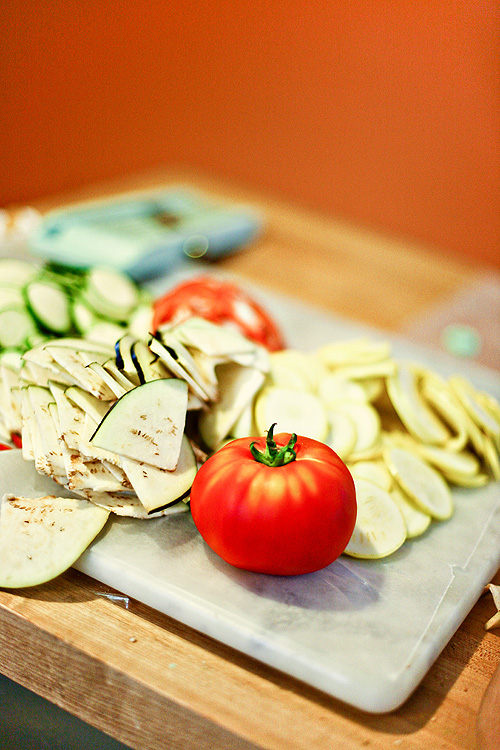
Photos courtesy of my talented husband of Gabriel Boone Photography
More on Food, Inc.
The Food Section reviews the film
VeryCulinary.com reviews the film
More Resources on this subject
Michael Pollan (read his books)
Eric Schlosser – Fast Food Nation
Cook Local Blog – Great resource for eating locally (especially for Pacific Northwest folks)
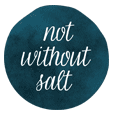




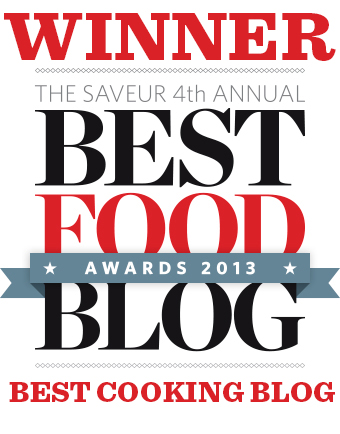




it’s playing at SIFF this weekend!
oh yes! Thanks for mentioning that!!
The colors are beautiful! What great photography!
Those photos are gorgeous!!
Preach it sistah 🙂
I heard about the film and wait anxiously to see it. I couldn’t agree more. It will take time but we will get there.
yes yes yes! thank you so much for this post, as an undergrad i’ve just completed a module in food policy and couldn’t agree more; wasn’t particularly sensitive to these issues before that but now definitely!!
ps love how your blog combines gorgeous posts about food with other content that shows your socially conscious side. please keep it coming :o) God bless xx
I cannot wait to see this film. It sounds like an educational, thoughtful success of a movie. I really enjoyed reading Omnivore’s Dilemma, and this movie seems to also emphasize the importance of seasonality and the superficiliaty of a simple label of “organic.” Can’t wait to see it!! Sorry I’ve been away for the past week; I had a good friend in town and wasn’t able to do much on the computer. I’m back now, though 🙂
I wonder if it will ever come to Salem? Sounds very interesting.
Definitely looking forward to seeing the film. I especially like how Robby talks about eating animal protein “as a taste” – not only is it ethically better, it’s way better for the environment if we aren’t all eating an entire chicken in one go.
But I’d love to correct one small note in your post: despite all the problems with factory farmed animals, chickens are actually not given hormones – it’s against USDA rules. See here: http://www.fsis.usda.gov/Fact_Sheets/Chicken_Food_Safety_Focus/index.asp
Often organic/free-range chicken packages say “No hormones added!” but that’s just as misleading as , for example, a salsa package saying “No cholesterol” – of course there wouldn’t be animal products (the only thing that has cholesterol) in vegetables!
Thanks for the correction! I appreciate it. I’ll amend the post.
;0 So can you share those tomato growing secrets???????
Okay let me see if I can explain this. About 6 inches away from each tomato plant she had a plastic pot (you know the kind plants come in that you buy at the nursery). The pot would be dug into the dirt so that the top was level with the surface of the soil. Then she would pour water into the plastic pot. The reason for all of this is so that the water goes straight to the roots of the nearby tomato plant.
I hope I got all that right.
I am so excited about this film and so happy to learn about it here. Part of the reason we left the US to make our chocolates was also so we could be closer to the source, and work in a country where most of the food supply has actually NOT been industrialized and mechanized. Ecuador has abundant, locally produced, non-mechanized agriculture in most areas still. This also includes dairy and beef production.
beautiful pictures and thanks for the info about the film
Excellent and informative post! Yes i read somewhere that if the entire world was vegetarian, world hunger would vanish… haha i have yet to give up meat, but i totally agree with you that it should be eaten less than veggies and fruits….
I am also looking forward to the film! And again, thank you for calling attention to eating healthily and environmental-consciously! 😀
Loved the post, indeed consumers have left their nutrition in the hands of totally suspect corporations, that happens everywhere, and most of the people are not even interested in checking the list of ingredients in their food… “some” prefer us to be ignorant and unaware.
What beautiful pictures, and I love the design of your site! Glad I found it! There is something so ‘alive’ in pictures from a farmers market, and they are totally captured here. nice work!